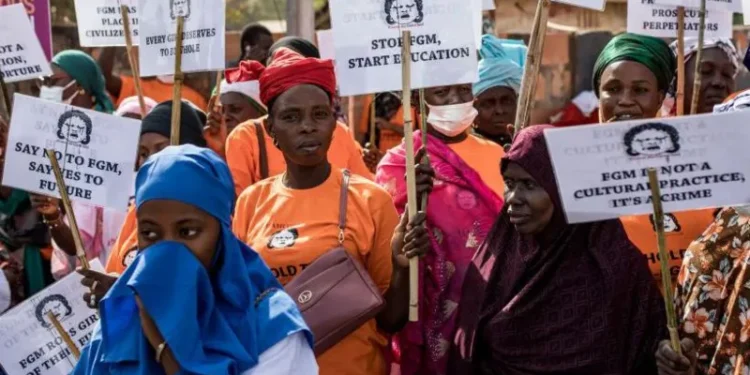A one-month-old baby girl in The Gambia died after undergoing female genital mutilation (FGM), a cultural practice outlawed in the West African state.
The baby was rushed to a hospital in Banjul, the capital, with severe bleeding but was pronounced dead on arrival.
Two women have been arrested in connection with the incident. FGM, which involves the deliberate cutting or removal of a female’s external genitalia, is often justified by social acceptance, religious beliefs, and misconceptions about hygiene.
Despite being banned in The Gambia since 2015, with fines and jail terms of up to three years for perpetrators, and life sentences if a girl dies as a result, the practice remains prevalent, with 73% of Gambian women and girls aged 15 to 49 having undergone the procedure.
The incident has sparked widespread outrage, with Women In Leadership and Liberation (WILL), a leading non-governmental organization, stating, “Culture is no excuse, tradition is no shield, this is violence, pure and simple.” The group’s founder, Fatou Baldeh, noted an increase in FGM procedures being performed on babies, saying parents believe they heal quicker and it’s easier to disguise due to legal restrictions.
Abdoulie Ceesay, the MP for the Kombo North District, emphasized the need to protect children from harmful practices, stating, “The loss of this innocent child must not be forgotten. Let it mark a turning-point and a moment for our nation to renew its unwavering commitment to protecting every child’s right to life, safety, and dignity”.









